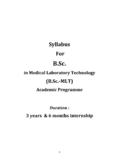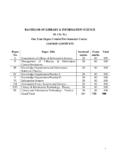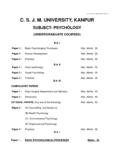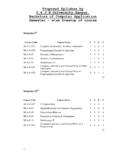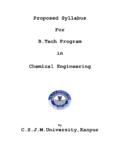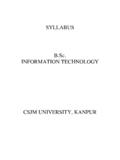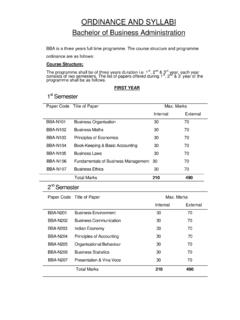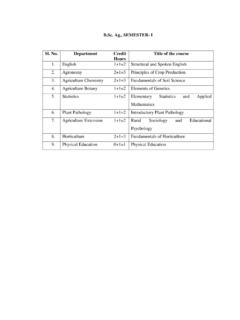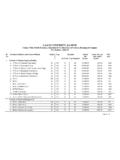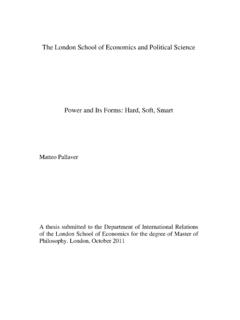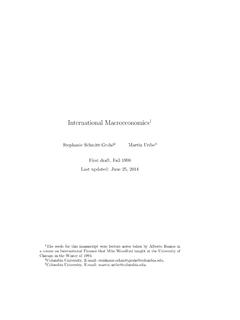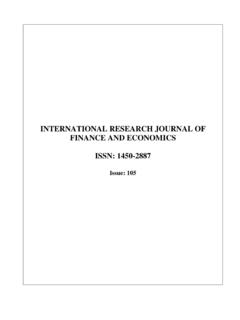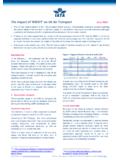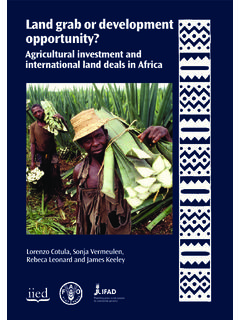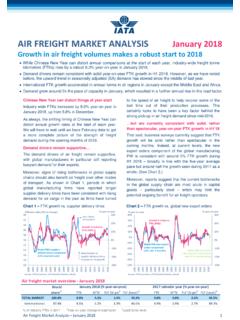Transcription of ECONOMICS B.A. – I BA/B.Sc Paper -I MICRO …
1 ECONOMICS I Paper -I MICRO ECONOMICS Note :- The Question Paper will have two question the first section is compulsory containing ten short answer question each of two marks based on all the four unit. From section there will four question one from each units with internal choice and having 7 Marks each Unite I Introduction :- The subject matter of ECONOMICS , Scope and Method of ECONOMICS , The economic Problem, Scarcity and Choice, the question of what to produces ? How to produce ? and how to distribute the output ? Reading and working with graphs, the functioning of Market Economy.
2 Price Mechanism and Profit Maximisation. Mathematical Concept : Variables, functions, equations and Identities, slop of line and curve. Unite II Theory of Consumer Behaviour : Utility Analysis-utility and satisfaction, Total and Marginal utility, Cardinal and Ordinal Approach, Law of Diminishing Marginal Utility, Law of equi-marginal utility, Consumer s Equilibrium, Indifference curve Analysis evolution and development of Indifference curve, Meaning and definition of Indifference Curve, properties of Indifference Curve, Indifference Schedule and curve, Diminishing Marginal Rate of Substitution, Consumer s Equilibrium, Griffin s paradox and Inferior goods.
3 // 2 // Demand and Supply :- Demand supply schedule and demand supply curve, Market vs. Individual demand ; Expansion and Contraction of Demand, Increase and Decrease in Demand, Factors influencing demand, Law of Demand. Elasticity of Demand ; changes in supply and factors influencing supply. Unit III Theory of Production and Price Theory :- Production function- an elementary treatment , Laws of Returns, Returns to scale, Substitution in Production Producer s Equilibrium, Elasticity of Substitution, Cost Analysis. Firm and its objectives, Nature of Markets, Revenue Analysis, Price determination under Perfect Competition, Monopoly, Imperfect and Monopolistic competition-elementary theory.
4 Unit IV Theory of Distribution :- Marginal productivity theory of distribution, Modern theory of distribution , Rent-Ricardian and Opportunity Cost theories, Quari Rent, Wages Real wages and Money Wages, the Modern theory of wage determination , Interest Classical, Loanable funds and the Keynesian theory Profit Gross and Net Profit , Normal profit Accounting profit Risk, Uncertainty and Innovation theories of Profit. Books Recommended 1. Stonier and Hague : A text book of economic theory 2. Lipsey : An Introduction to positive ECONOMICS . 3. Samuel Paul A. : ECONOMICS 4. Gould and Ferguson : MICRO economic Theory 5.
5 FeJ ,oa iqjh : O;f V vFkZ kkL= 6. MkW0 ,l0,u0 flag : lw{e vFkZ kkL= ,oa lquhy dqekj flag 7. MkW0 ,l0,u0 yky : O;f V vFkZ kkL= I Paper -II Nature and Probles of Indian Economy Note :- The Question Paper will have two question the first section is compulsory containing ten short answer question each of two marks based on all the four unit. From section there will four question one from each units with internal choice and having 7 Marks each Unite I Structure of the Indian Economy :- Natural Resources Land, Water and Forest Resources, Demographic profile size of population and growth rate , Sex Ratio, Rural-Urban migration, Occupational distribution, Demographic dividend myth & reality , Population policy , Structural transformation of Indian Economy, National Income.}
6 Objectives and strategies of planning in India, poverty, unemployment its nature & extent, employment policy in India. Unit II Agriculture :- Trends in production and productivity. New Agricultural Strategy, Impact of Green Revolution, Disparities in Agricultural Growth disparity of crops, regional disparity, Issues related to land less agricultural labour and small and marginal farmers, Rural Credit, Agricultural Marketing . Irrigation and Water Management, Agricultural price policy. Agricultural rural development programmes. Land reform in agriculture // 2 // Unit III Industry and Service Sector :- Growth and structure of Industrial Economy, Industrial Policy since economic reforms, Industrial Licensing Policy- , , and , Growth and problems of small scale industries, Role of public sector Enterprises in India s industrialization, Sources of Industrial Finance , Problems of Indian industries, Service sector- meaning, role , structure and recent growth.
7 MNC s & Public Private Partnership. Unit IV Economy of Uttar Pradesh :- Main problems of development in Causes of under development, strategies adopted, Dislocation of industries from Issues related to poverty, employment and food security , Implementation of Central Government Schemes MANREGA, NRHM & Sarva Siksha Abhiyan. Panchayat Raj in Issues related to development of Land acquisition-Crisis and cure. Demographic Scenario of Books Recommended 1. Alak Ghosh : Indian Economy 2. Dutta and Sundram: Indian Economy 3. Govt. of India : Annual economic Survey 4. feJ ,oa iqjh : Hkkjrh; vFkZO;oLFkk 5.
8 MkW0 ,l0,u0 flag : Hkkjrh; vFkZO;oLFkk ,oa lquhy dqekj flag 7. MkW0 ,0,u0 vxzoky: Hkkjrh; vFkZO;oLFkk II Paper -I MACRO ECONOMICS Note :- The Question Paper will have two question the first section is compulsory containing ten short answer question each of two marks based on all the four unit. From section there will four question one from each units with internal choice and having 7 Marks each Unite I Macro ECONOMICS National income analysis : Meaning, Subject matter and limitation of Macro ECONOMICS , Macro economic paradoxes; Role of Govt. in Macro Economy Macro Statics; Comparative statics and dynamincs.
9 Meaning of National Income accounts; Some basic Concepts- domestic territory of a country, Normal Resident of a country; Stocks and flows ; National capital, wealth and income; National Income and related aggregates, GDP, GNP, NDP, NNP (Both at market price and factor cost); Private income ; personal income; disposable income; Capital formation. Distinction between goods and services, producers goods and consumer goods, intermediate goods and final goods. Unit II Generation of income and Measurement of National Income:- Generation of Income and production process, sources of income-Domestic factor of income; compensation of employees; operating surplus; Mixed income of self employed; Net factor income form abroad, Methods of measurement of National Income-Value added method, Expenditure, method, // 2 // Components of final expenditure Method; Limitations of GDP Concept green accounting ; Parallel Economy.
10 Unit-III Determination of Income and Employment :- The classical theory of employment the labour market; the product market, the capital market; Concept of wage-price flexibility ; Keynes. Criticism of the classical Model. The Keynesion model Aggregate expenditure and equilibrium output; Concept of effective demand; theories of macro Consumption function; Investment function; Saving and investment equilibrium- Ex- Post and ex-ante. Liquidity trap, role and importance of investment multiplier. Elementary ideas of IS & LM curves. Unit-IV Trade Cycles :- Nature and characteristics; Hawtray s monetary theory ; Hayek s over-investment theory ; Keynes views on trade cycles; the concept of accelerator; Super Multiplier, Multiplier - accelerator theories of trade cycles; control of trade cycles.

